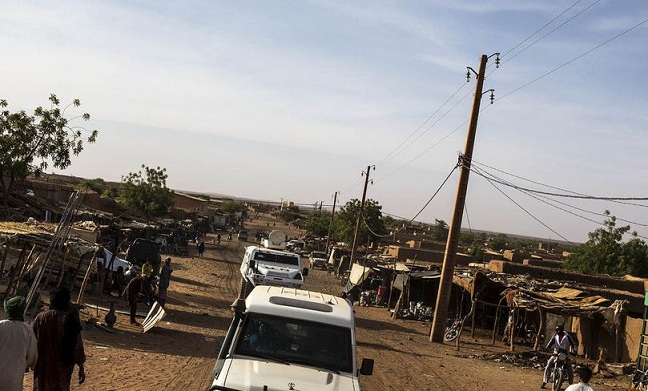
U.N. expert warns of ‘alarming’ rise in rights violations in Mali

[Courtesy: UN]
Alioune Tine made the remarks following two deadly attacks in recent days on international forces in the West African country, including one suicide bombing in Gao that left at least two civilians dead and more than 15 others injured.
Tine said more than 120 people were allegedly murdered in a three-week period in April and May. He noted that violent extremists had taken advantage of the lack of basic services “to exploit communities and pit them against each other”.
Some attacks have been attributed to armed groups including the Azawad Salvation Movement (MSA) and the Touareg IMGHAD Self-Defense Group and Allies (GATIA), the U.N. expert noted.
The Senegalese expert said the on-going insecurity in Mali, which has been characterized by kidnappings and targeted killings, has displaced entire communities, forcing more than 650 schools to shut down in central and northern regions, affecting nearly 200,000 children.
He also expressed concern over increasing attacks on the Malian armed forces, echoing concerns about anti-terrorist operations “that do not respect international human rights standards”.
He appealed to the government of Mali to bring the perpetrators to book.
The war in Mali began in 2012 as different armed groups began fighting the government, seeking autonomy for the greater northern region. The war has killed thousands and displaced millions others, creating a humanitarian crisis in the West African country.
According to Tine, more than 4.1 million people need food aid, with more than 250,000 suffering from acute malnutrition.
The expert – who took office as Independent Expert on the situation of human rights in Mali on 1 May – will present his report to the Human Rights Council in March next year.






